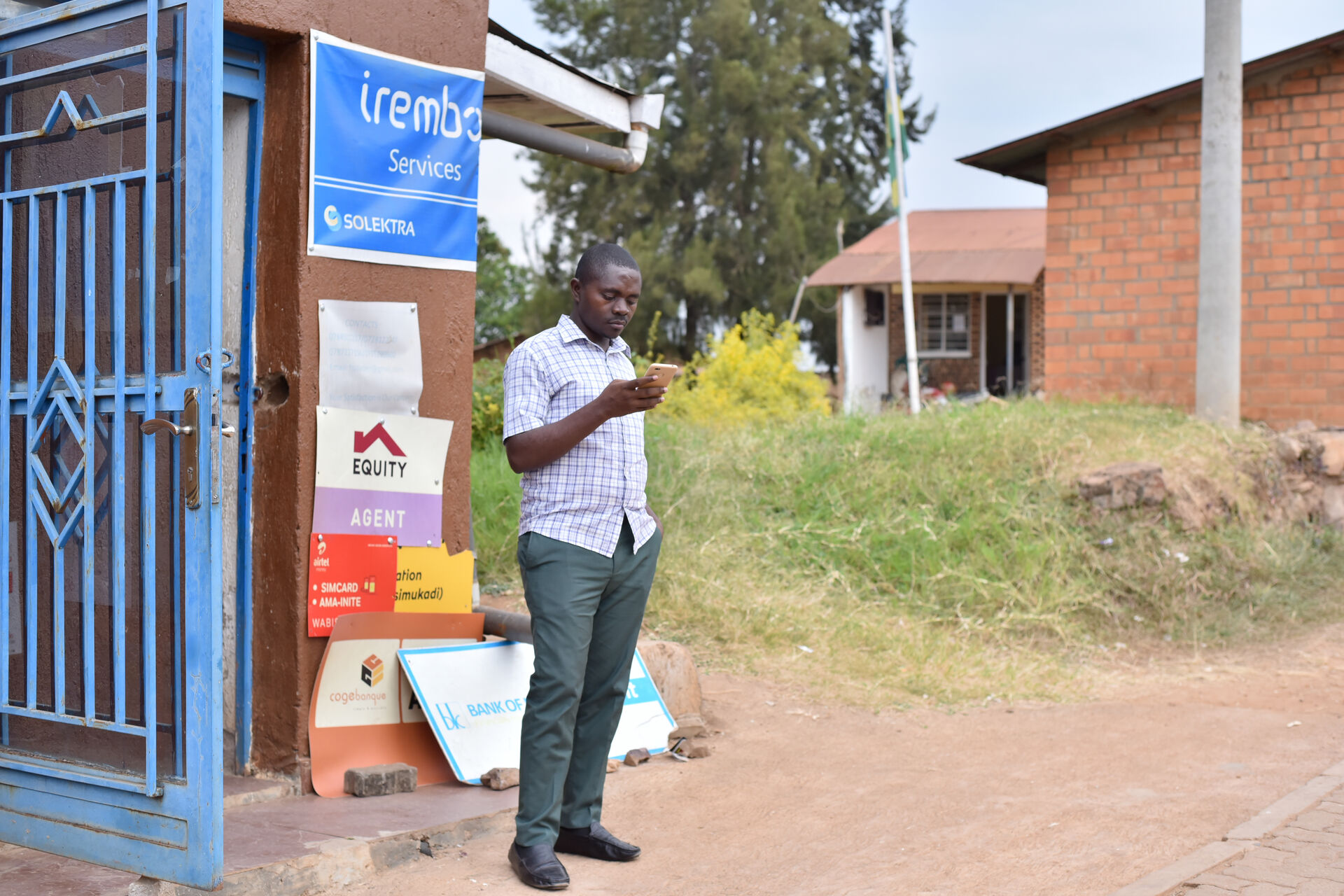
News
SIIPS report 2023: a perspective on the role of agents and merchants
by Sabine Mensah, Deputy CEO - 12 October 2023
In the ever-evolving landscape of digital payments, Africa is making significant strides; however, the latest World Bank Findex report reveals that 45 percent of Africans are still not engaging in digital transactions. In this second piece, we explore another dimension of this challenge: the vital roles of agents and merchants in propelling the adoption of inclusive instant payment systems (IIPS) on the continent. This dimension was revealed through a consumer study carried out this year in Cameroon, Malawi, Morocco, Rwanda, and Senegal, as part of the research for the 2023 Report on the State of Instant and Inclusive Payment Systems (SIIPS 2023).
Champions of digital payments adoption: agents and merchants
Agents, often unsung heroes in the digital payment narrative, are more than just users of instant payment systems. They are pivotal players who introduce their clients to digital payments, encourage them to embrace digital services, and help them navigate the first steps of signing up and using digital payment platforms. In Africa’s cash economies, it is critical to have mechanisms to turn fiat currency into digital money. The Cash-In Cash-out (CICO) role played by agents in the digital payment value chain on the continent is critical in driving customer adoption.
Moreover, agents serve as a lifeline for local outreach in rural and underserved areas. They help establish trust and familiarity and provide hands-on customer support and guidance as individuals deepen their engagement with digital payments.
Agents
In our research in Cameroon, we found that agents are particularly effective at raising awareness of digital payments and their benefits among those who were initially hesitant to make the shift. They assist clients with getting started, guide individuals and MSMEs through digital payment processes, enhance their transaction skills, and provide prompt issue resolution.
“When I got my first android phone and SIM, the agent set me up and then I registered and that’s how I started using {provider}.” Male user, 40–55, Douala, Cameroon
However, this role also has its challenges. Indeed, in the mind of the consumer transacting at an agent location, the agent is the face of the provider and should be responsible for any service challenges encountered. Let’s take the case of Samuel, a mobile money and bank agent we interviewed in Malawi. As a small agent enterprise, Samuel facilitates utility bill payment services (cable, electricity, etc) for his customers. He finds that when service providers have outages or technical issues, customers bring complaints to him rather than to the provider. He shared the complexities agents face: “Sometimes you can pay a TV subscription for your customer, but you will see him coming back claiming that channels are not working. I am just an agent, but the entertainment company is to blame.’’
To mitigate these risks, agents record transactions for verification later; by, for instance, maintaining booklets of handwritten records of transactions or by taking screenshots of transactions.
Yet the journey to adoption of digital payments goes beyond the capacity for CICO and utility bill payments. For customers to move from trial to sustained usage, the ecosystem must provide compelling value propositions beyond transferring and storing funds on digital instruments. In our everyday lives, we make more payments for goods or services than we send or receive money, in any given month. While agents are often the channel for utility bill payment transactions, merchants are the ones enabling digital payments for goods and a variety of other services.

Merchants
Getting merchants to embrace digital payments is a key catalyst for expanding the value of digital transactions in our everyday life. Different factors drive merchant adoption, depending on the context. For instance, in our research in Morocco and Rwanda, the availability of bonuses and rewards for digital payment usage, such as airtime payments, incentivized businesses to adopt digital payments. In Senegal, businesses were enticed by the ability to receive payments for goods and services before delivery, while merchants in Malawi and Morocco emphasized the importance of traceability through transaction records.
When these factors align, success stories emerge, as exemplified by Uzamukunda, a female tailor in Rwanda: “Mobile Money is the easiest method of payment, and it is fast. It is not costly, and it helps in management. When you keep money on mobile money…it is hard to spend it without a reasonable cause.” Moreover, using mobile money has enabled her to earn interest on her savings and enhance her business’ resilience. “When I save money with the provider, after two weeks I receive interest according to which amount of money I have. And the provider can give you credit. When you get an unpredicted issue, they can give…a loan to be paid in a certain period of time.”
Across the five countries studied, customers and agents play pivotal roles in driving merchant adoption. Customers who prefer digital payment options encourage micro, small, and medium-sized enterprises (MSMEs) to consider and eventually adopt digital payment methods. Some agents themselves also proactively embrace digital payments for their own businesses. One agent in Cameroon shared: “I was initiated to digital payments by my clients. They gave me the desire to get involved in it.”
Even though digital payments can be appealing, businesses often face challenges when trying to use them, as we found in the 2022 SIIPS Africa report. These challenges include, among others, issues with reliability of mobile networks, not enough agents to help, and worries about fraud. Addressing these challenges is crucial for sustained growth in digital payment adoption.
Building inclusivity from the ground up
In the journey toward a cashless society, agents and merchants emerge as pivotal actors. Their local outreach, trust-building, and customer support efforts significantly reduce access and adoption barriers for digital payments. As they continue to champion digital payment adoption, we move one step closer to a more inclusive financial landscape that benefits individuals and economies alike.
The firsthand insights from agents and merchants shed light on the challenges and opportunities faced by these key stakeholders on the ground. This perspective is invaluable in our quest to enhance the value of inclusive instant payment systems for all participants in the economy.
Watch out for SIIPS 2023 for deeper insights into these perspectives and a broader exploration of how instant payment systems can bolster African economies by becoming more inclusive. Register to attend the launch event!


